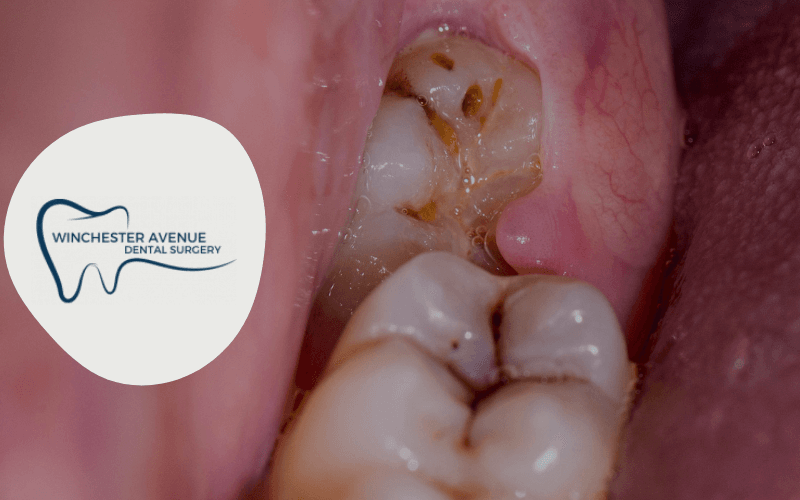Wisdom Teeth: What You Need to Know
Wisdom teeth are the last set of molars to emerge, usually in your late teens or early twenties. While some people have no problems with them, others experience pain, swelling, or misalignment as their wisdom teeth grow. If you’re unsure whether you need a wisdom tooth extraction dentist, or you’re dealing with a wisdom tooth growing sideways, this guide will answer your questions.
What are wisdom teeth?
Wisdom teeth are your third molars, positioned at the very back of your mouth. Most adults have four, but some people may have fewer or none at all. Unlike other teeth, wisdom teeth can be unpredictable. Some grow without any issues, while others can cause pain and complications.

How long do wisdom teeth take to grow?
A common question is how long do wisdom teeth take to grow. Unlike other teeth, they don’t usually erupt all at once. Wisdom teeth can take months or even years to fully emerge, often coming in at an angle or getting stuck under the gum.
You might notice discomfort during different stages of their growth, especially if they don’t have enough space. When a wisdom tooth grows sideways, it can press against your other teeth, leading to pain, swelling, and even infection.
Signs you may need a wisdom tooth removal
Not everyone needs their wisdom teeth removed, but there are several signs that indicate a problem:
- Pain and Swelling: Discomfort at the back of your mouth is a key sign your wisdom teeth are causing issues.
- Gum Infections: If your wisdom teeth are only partially through, food and bacteria can get trapped, leading to infection.
- Crowding: Wisdom teeth can push against neighbouring teeth, causing misalignment.
- Jaw Stiffness: Pain when opening your mouth or chewing can indicate a problem.
If you’re experiencing these symptoms, it may be time to see a wisdom tooth extraction dentist. You can book an appointment with our team at Winchester Avenue Dental Surgery for expert advice.
Wisdom tooth extraction: what to expect
If your dentist recommends removing your wisdom teeth, you may feel nervous about the procedure. Here’s what you can expect:
- Assessment: Your dentist will examine your mouth and take X-rays to determine the position of your wisdom teeth.
- Anaesthesia: You’ll receive local anaesthesia to numb the area. In some cases, sedation may be used for more complex extractions.
- Extraction: The dentist will carefully remove the tooth. If it’s impacted, they may need to make a small incision in the gum.
- Recovery: You’ll receive aftercare instructions to help with wisdom tooth removal recovery.
For professional and gentle tooth removal, visit Winchester Avenue Dental Surgery.
Wisdom tooth removal recovery: how long does it take?
Recovery time varies, but most people feel better within a few days. Swelling and tenderness are normal, especially in the first 48 hours. Here are some tips to speed up your wisdom tooth removal recovery:
- Rest: Avoid strenuous activities for the first couple of days.
- Cold Compress: Applying an ice pack to your cheek can help with swelling.
- Soft Foods: Stick to soups, mashed potatoes, and yoghurt for the first few days.
- Avoid Straws: Sucking can dislodge the blood clot and lead to a painful condition called dry socket.
- Good Oral Hygiene: Rinse gently with salt water, but avoid vigorous brushing around the area.
If you experience severe pain, swelling, or signs of infection, contact an emergency dentist immediately.
Final thoughts
Wisdom teeth don’t always cause problems, but when they do, it’s important to act quickly. If you’re experiencing discomfort, swelling, or signs of infection, visiting a wisdom tooth extraction dentist can prevent further complications.
For expert advice, wisdom tooth removal, and gentle dental care, book an appointment with Winchester Avenue Dental Surgery. Our experienced team is here to help you maintain a healthy, pain-free smile.
Frequently asked questions - wisdom tooth
How long do wisdom teeth take to grow?
Wisdom teeth can take months or even years to fully emerge. Some never break through the gum at all, staying impacted below the surface.
Do all wisdom teeth need to be removed?
No, only problematic wisdom teeth need extraction. If they’re causing pain, infection, or pushing against other teeth, removal is recommended.
How painful is wisdom tooth removal?
The procedure itself isn’t painful as anaesthesia is used. Some discomfort is normal during recovery, but pain relief medication can help.
What happens if I ignore wisdom tooth pain?
Ignoring wisdom tooth pain can lead to infections, cysts, and misalignment of other teeth. If you’re in pain, consult a wisdom tooth extraction dentist as soon as possible.
How long does it take to recover from wisdom tooth removal?
Most people recover within a few days to a week. Swelling usually subsides in 3-4 days, and full healing can take a few weeks.
